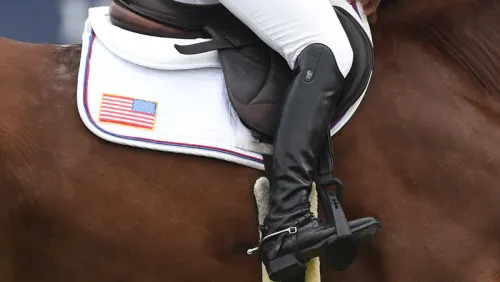Wyoming Governor Dave Freudenthal signed HB 122 into law March 9. The law provides the Wyoming Board of Livestock with three options to deal with abandoned, stray, feral or abused animals which enter into their jurisdiction. The Board may take the animal to public sale, which was the only option prior to this legislation, or may now send the animal to slaughter or destroy the animal.
The Board of Livestock is working in conjunction with The United Organizations of the Horse to execute this law.
“Wyoming has a huge abandoned horse problem. There has been a tripling in the number of abandoned horses every year for the past three years,” said Sue Wallis, a Wyoming state representative and executive director of the UOH.
“Previously the BOL put these animals up for public sale. Now, the market is so saturated; this is no longer an option. No one wants these animals. The BOL recently received $1 for a group of 237 horses, and they were happy to get it. The expense of keeping these animals is a considerable burden,” Wallis continued.
“If the BOL chooses the slaughter option, they may provide the meat to state institutions or [non-profit organizations] at their cost or sell the meat at market price.”
There is no federal law against horse slaughter. The only caveat to this is the U.S. Food and Drug Administration is not authorized to inspect horsemeat. This means that state inspection services have to inspect the meat, which is how much of meat produced in the United States is inspected. State inspection standards must be equivalent to or more stringent than FDA standards.
Thus, horsemeat produced in Wyoming may be used for human consumption and will most likely be used at prisons or donated to the needy. If the meat is sold across state lines, it cannot be used for human consumption. This meat would most likely be sold to zoos.
ADVERTISEMENT
“This is definitely going to happen. We are dedicated to showing the world that this is the best way of dealing with the problem,” said Wallis. “If you have a horse that no one wants and that cannot be supported, what better option is there? Why waste a valuable resource?
“The United Organizations of the Horse is working with Dr. Temple Grandin to develop protocol for humane horse slaughter. Temple is renowned for transforming the slaughter industry for cattle and hogs and will design similar improvements for horses,” she continued.
Of course, many animal activists are opposed to the new legislation.
“This bill makes no sense, either practically or economically,” stated Scott Beckstead, equine protection specialist at the Humane Society of the United States. “Most horses are treated with drugs that make them unsafe for human consumption, and zoos are moving away from use of horse meat.
“Slaughtering horses can never be humane. They are extreme flight animals. When they enter the kill box, they become very agitated, making it near impossible to execute a humane kill,” Beckstead continued. “This is a major betrayal to our horses. We would never slaughter our cats and dogs, so why should we do it to them?”














